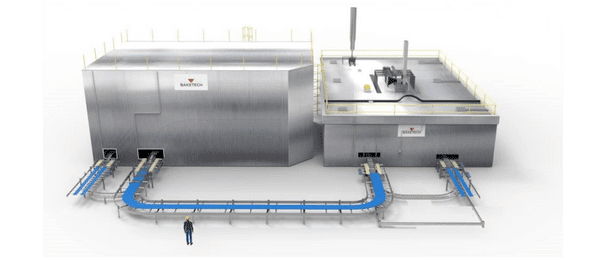
By Bud Harris, Buyer for AMF Bakery Systems
Introduction
With nearly four decades in the metal fabrication business and twenty years in purchasing, I’ve seen firsthand what sets exceptional sheet metal suppliers apart. I was approached by my primary sheet metal fabricator to write this article to help other new buyers entering into procurement positions. They asked me to review the most important issues in selecting your primary sheet metal fabrication supplier. I enjoy mentoring the younger generation. Who knows, I may have found a new calling and pathway to do so.
My buying approach has always been rooted in collaboration, mutual growth, with a focus on long-term partnerships rather than adversarial relationships. Here’s what I believe every buyer should prioritize when selecting a sheet metal fabrication partner.
1. Value-Added Engineering and Manufacturability
Great suppliers don’t just deliver parts; they collaborate to make your products better and more cost-effective. I look for partners willing to engage in value-added engineering—working alongside us to find ways to improve manufacturability and reduce costs, ultimately sharing those benefits.
2. Clear Communication and Accountability
The foundation of any strong supplier relationship is clear, consistent communication and a commitment to follow through.
3. Quality Management and Process Control
A supplier’s process is more important than their equipment list. I always tour facilities to assess:
4. Equipment and Technology
While old equipment can still be effective, modern machinery and software offer significant advantages.
5. Supply Chain Resilience and Material Sourcing
Recent years have highlighted the importance of reliable material supply.
6. Partnership and Mutual Success
I believe in win-win relationships. My success depends on my supplier’s success, and vice versa.
7. Flexibility and Modular Design
Whenever possible, work with suppliers who can help standardize and modularize parts.
8. Facility Visits and Ongoing Engagement
Regular, in-person engagement keeps the relationship strong and uncovers new opportunities.
9. Investing in People
A supplier’s workforce is as important as their machines.
Conclusion
Selecting the right sheet metal fabrication partner is about more than price or equipment lists. It’s about building a relationship based on trust, communication, and shared goals. When you find a supplier who invests in their people, processes, and technology—and who treats your success as their own—you’ve found a partner worth keeping. It is safe to say that Southern Metalcraft checks all these boxes for me.
About the Author

Bud Harris has spent nearly 40 years in the metal fabrication and bakery equipment business and over 20 years in purchasing roles. He is recognized for his pragmatic approach to vendor relationships, focusing on collaborative problem-solving, process-driven supplier evaluation, and fostering long-term partnerships that enable mutual growth. His expertise includes guiding engineering teams, supporting global project installations, and leveraging modern technology and quality systems to ensure reliability and value in the supply chain.
Bud’s dedication to developing productive supplier relationships and his commitment to mentoring the next generation of manufacturing professionals make him a respected voice in the bakery and metal fabrication industries.